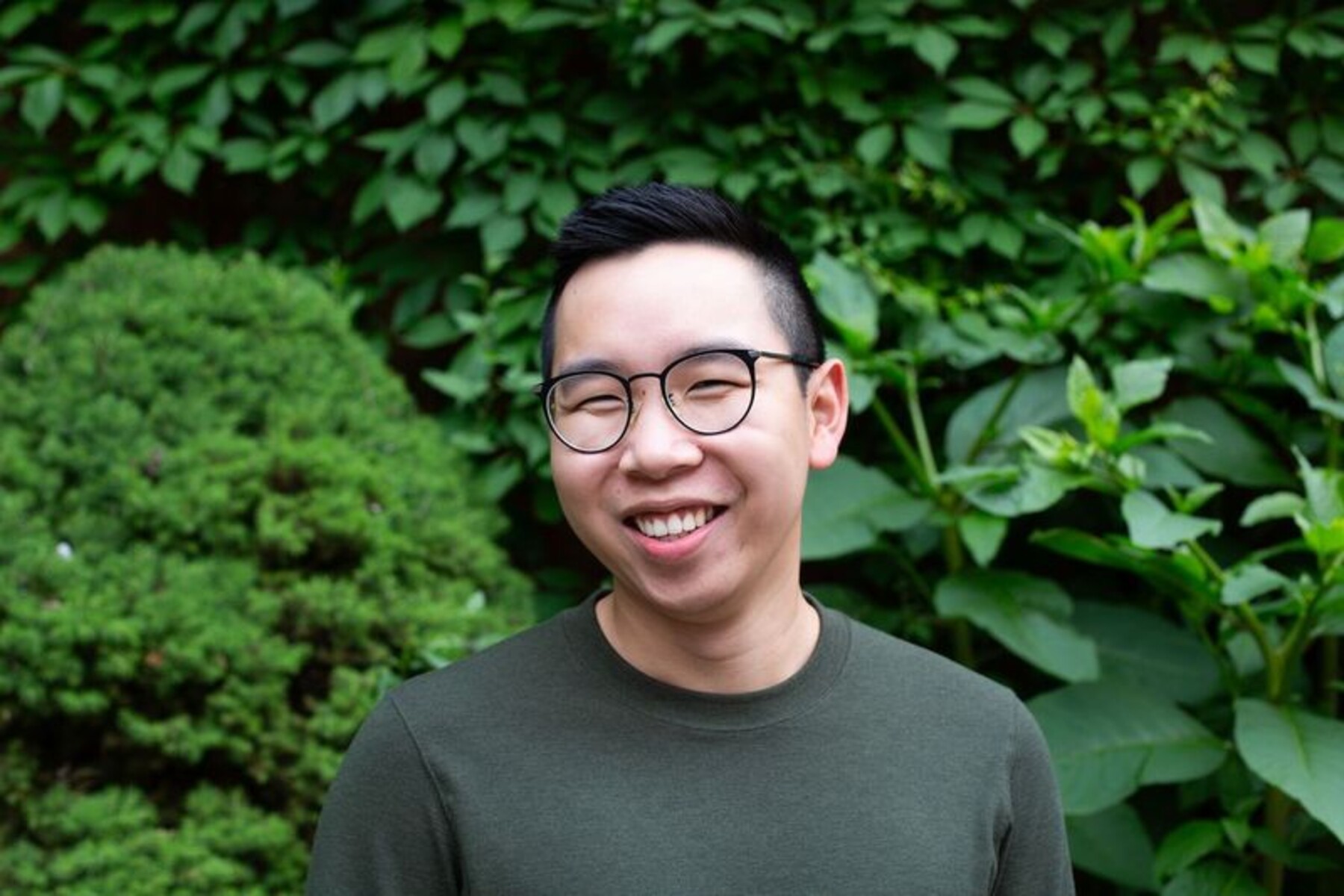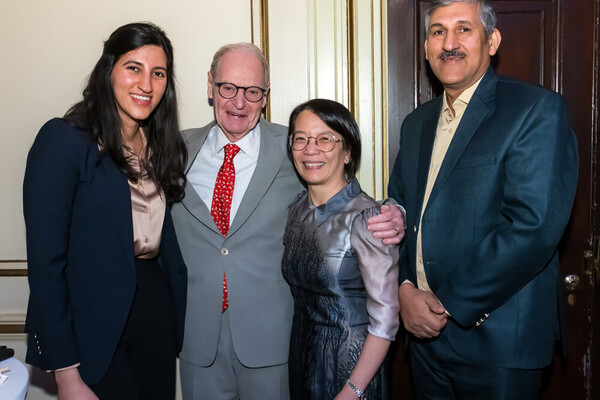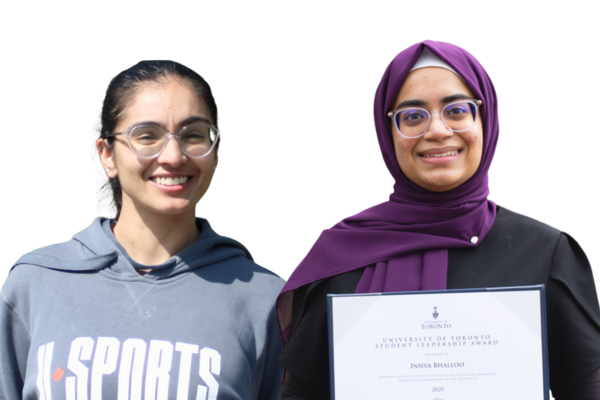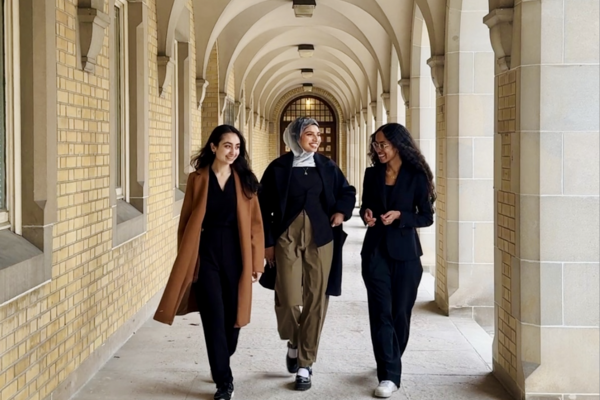Main Second Level Navigation
Breadcrumbs
- Home
- News & Events
- Recent News
- Faces of Temerty Medicine: Brandon Tse
Faces of Temerty Medicine: Brandon Tse

Ten years ago, Brandon Tse was diagnosed with aplastic anemia at The Hospital for Sick Children (SickKids). This July, he starts residency in hematopathology at U of T – a specialty that focuses on diseases of the blood. In this Q&A, Tse talks about how his experience as a patient will shape his practice, what parts of residency he’s looking forward to most, and why music is such a huge part of his life.
What made you want to pursue medicine?
On a broad scale, my journey was a bit boring – prior to medical school, I completed my undergraduate degree at U of T in life sciences and before that, went to high school in Toronto as well. I’d like to say I was confident and unwavering in that path, but there were certainly moments of career doubt along the way. I actually applied to the jazz performance program here at U of T and seriously considered a career in music!
A lot of factors drew me to medicine. I always had an interest in science and human physiology, but realized that I was especially excited by diagnostics and thinking through clinical problems. At the same time, I think I had a unique appreciation for the human aspect of medicine from my experiences as a patient. I was exposed to the healthcare system relatively early and saw the incredible impact that a great clinical team can have on how patients and families experience illness. The idea of contributing to this through a career in medicine was ultimately what led me here.
You’re about to start your residency in hemopathology – what drew you to this field?
I discovered hematopathology relatively late, only a few months before residency applications! I had always been drawn to hematology, but eventually realized that a career in laboratory medicine much better suited my interests. At first, everything was so new to me (I honestly did not even know how to turn on the microscope on my first day), but as I learned more about the field I knew it was the right choice.
To put it very simply, hematopathology is a specialty that focuses on both malignant and non-malignant diseases of the blood in a laboratory setting. Much of our “bread and butter” work includes reading peripheral blood films and interpreting bone marrow samples. It really focuses on diagnostics, requiring you to not only interpret the visual findings under the microscope, but also consider a patient’s lab values and clinical context. It’s like solving a puzzle! I think what really surprised me, though, was its large scope of practice, which uniquely blends both laboratory and clinical medicine. Many people don’t know that we are also trained in areas such as special coagulation, transfusion medicine, laboratory management, and in many places even perform bone marrow biopsies. I could go on and on, but the last thing I’ll mention is the strong emphasis on collaboration. Contrary to popular belief, pathologists are constantly working and communicating with people - whether it be consulting your peers on interesting cases, discussing diagnoses with clinical teams, or interacting with the many wonderful laboratory staff.
Do you think being diagnosed with aplastic anemia as a teen and your experience as a patient will impact the way you practice medicine?
Absolutely. Experiencing this as a teenager, it was uniquely difficult in that I was aware of everything going on around me, including the seriousness of my illness and the distress of my parents. As I mentioned, it was one of the reasons I went into medicine in the first place and certainly contributed to my interest in hematology. Through my clinical training, it helped me connect with my patients and appreciate their perspectives. I knew how impactful our words, actions, and attitude could be on a patient’s healthcare experience. Especially in hematology, I found that I could provide support to patients in unique ways – I had felt the fear before a first bone marrow biopsy, the anxiety of waiting for the next test result, and the gravity of receiving a chronic diagnosis. Even in a laboratory medicine specialty, I find myself still thinking of the patient behind the slide or test, keeping in mind the meaning and purpose of our work.
Which part of residency are you most excited for? What are you most nervous about?
I’m honestly excited for all of it! I feel like I’ve just barely touched the surface on all there is to learn and experience within hematopathology. Even just through my electives, I had so much fun picking up new skills like visual morphology and interpreting flow cytometry results. Sometimes it’s a challenge but I really enjoyed being able to sit and try to think through new concepts in a self-directed fashion. I’m also excited to work with all the amazing staff in Toronto, many of whom are mentors that I’ve looked up to for a long time.
Like many new residents I’m probably most nervous about the increase in responsibility. I think there’s always a bit of apprehension when it comes to transitioning to a new role. That being said, hematopathology training places a ton of emphasis on learning rather than service, and I’ve heard does a great job of gradually increasing responsibility to prepare you for practice after residency.
Outside of medicine, what do you like to spend your time doing?
Before medical school, I spent most of my time involved in music as a jazz saxophonist. As I mentioned, I had seriously considered it as a career and had lots of chances to perform and record professionally at a pretty young age. I did step away from the instrument for a few years, but have recently started to pick it up again. I’ve really been enjoying it and hope to get back to doing some gigging around Toronto during residency. I also find vintage saxophones fascinating and at one point had almost 10 of them filling up my small Toronto condo.
Otherwise, I love spending time with my family and dog, travelling, and indulging in some “occasional” video games with friends.
News


